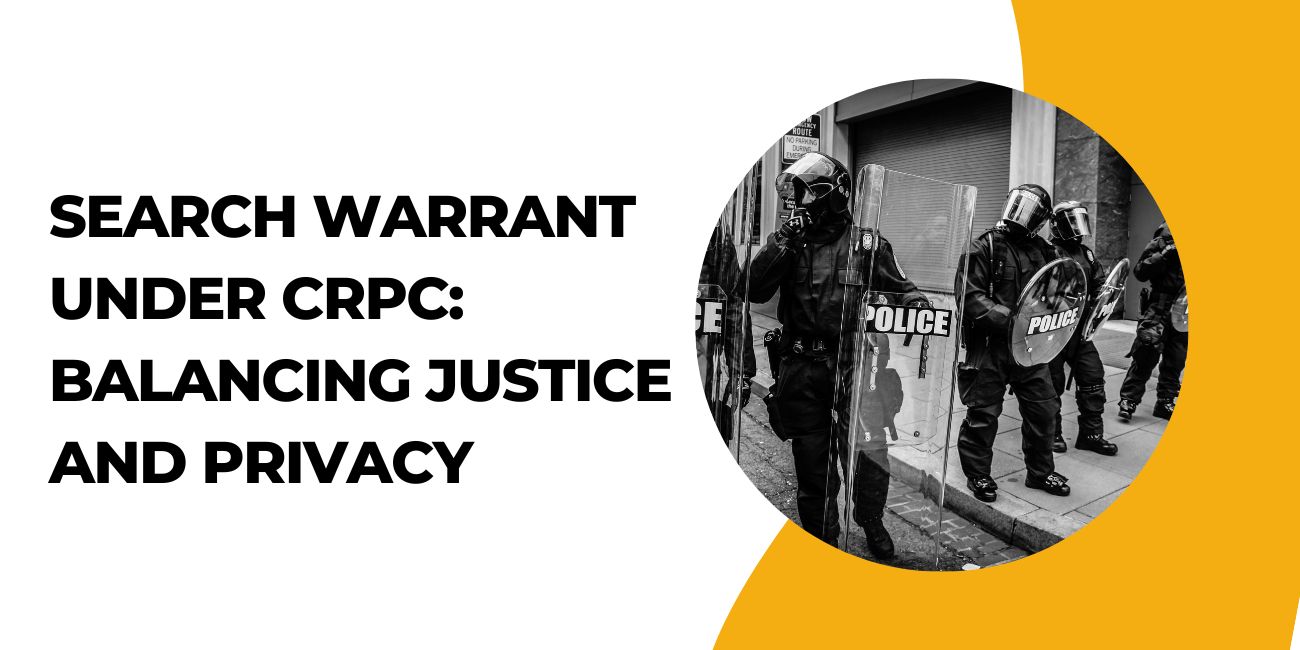
In any democratic society, the concept of individual privacy holds immense value. It is crucial to protect the fundamental rights and liberties of citizens while maintaining law and order. The Code of Criminal Procedure (CrPC) in India, like many other legal systems, has provisions that enable law enforcement agencies to search and seize property as part of their investigations. The legal instrument that authorizes such searches is known as a “Search Warrant.”
A search warrant is a written order issued by a magistrate or a court, granting law enforcement officials the authority to enter premises, search for specific evidence, and seize relevant items, subject to certain conditions and restrictions. This legal process aims to strike a balance between the necessity of investigating and solving crimes and safeguarding an individual’s right to privacy.
When can a Search Warrant be issued?
Under Section 93 of the CrPC, a search warrant can be issued if the following conditions are met:
Reasonable Suspicion: The police officer or investigating authority must have a reasonable suspicion that certain property or objects connected to the commission of a crime or evidence related to the case are present at a particular location.
Issuance by a Magistrate: Only a judicial magistrate or a court has the power to issue a search warrant. This ensures that an impartial and independent authority reviews the request before authorizing the search.
Information on Oath: The application for a search warrant must be supported by an oath or affirmation, where the police officer or complainant swears the veracity of the information provided.
The Procedure for Obtaining a Search Warrant:
Filing of Application: The police officer or complainant must file an application before the appropriate magistrate, providing details of the suspected crime and the place to be searched.
Examination by the Magistrate: The magistrate examines the application and may question the applicant or witnesses, if necessary, to ascertain the validity of the grounds for issuing the warrant.
Issuance of Warrant: If the magistrate is satisfied that there are reasonable grounds for issuing a search warrant, they will grant the warrant with specific instructions on the scope of the search and seizure.
Safeguards to Protect Privacy:
While search warrants empower law enforcement, they also have certain built-in safeguards to protect individual rights:
Specificity: The warrant must clearly specify the place to be searched and the items to be seized. It prevents authorities from conducting indiscriminate searches.
Timely Execution: A search warrant must be executed within a reasonable time frame, usually during daylight hours unless there are compelling reasons for nighttime execution.
Witnesses: The search must be conducted in the presence of at least two independent witnesses from the locality.
Challenges and Concerns:
Despite these safeguards, concerns about misuse of search warrants and potential violations of privacy rights persist. There have been instances of unwarranted searches and seizures without proper evidence, leading to harassment of innocent individuals.
Conclusion:
Search warrants play a vital role in criminal investigations, ensuring that the wheels of justice keep turning. However, it is essential to strike a delicate balance between the need for law enforcement to gather evidence and respect for individual privacy rights. Stricter scrutiny during the issuance of warrants and improved oversight mechanisms can help address concerns and uphold the core principles of justice and liberty enshrined in the Indian legal system.
If you want to be a judicial officer and are looking for RJS coaching in Jaipur, here, at Jyoti Judiciary we provide comprehensive study material to make your preparation solidified and top-notch. From preliminary mock tests to mains answer writing sessions every material required for clearing the exam is provided. We have separate legal current affairs classes, legal general knowledge, and current affairs classes all in one-time enrolment. Hurry up.









